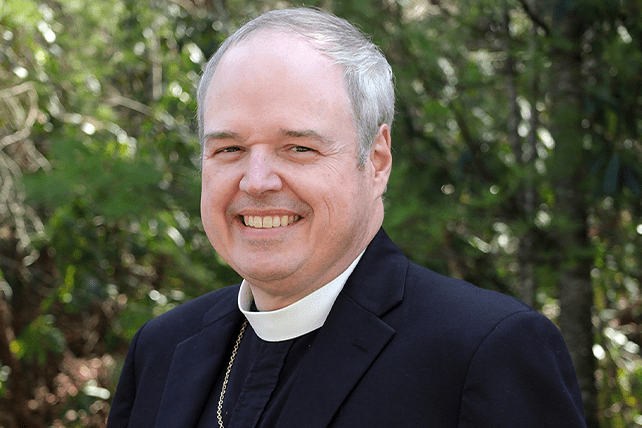In mid-June the Episcopal Church announced that two of the five bishops being considered for the top leadership position of the denomination were currently subjects of church discipline investigations and had previous complaints dismissed, as did a third nominee. Rowe was not among those three.
Curry, whose term ends Oct. 31, was elected the first Black bishop of the Episcopal Church in 2015. His term included preaching the sermon at the 2018 wedding of Prince Harry and Meghan Markle, being the subject of an internal clergy misconduct complaint for his response to abuse allegations of a former bishop, and enduring hospitalizations and medical treatment for a brain bleed, internal bleeding and heart conditions.
But he kicked off the weeklong meeting, which ends Friday, by declaring to Episcopal leaders that he was not worried about the future of their church.
“I’m here to tell you this Episcopal Church is stronger, more durable and has a future that God has decreed and that God has figured out,” he said in opening remarks at a June 22 joint gathering of the House of Deputies and House of Bishops before legislative meetings started the next day. “And I’m here to tell you, don’t you worry about this church. Don’t you weep and don’t you moan. Just roll up your sleeves and let’s get to work. That’s our future.”
But at a news conference on the Friday preceding the meeting, Curry acknowledged the challenges ahead for his successor.
“Somehow our next presiding bishop in our church going forward is going to listen to what the spirit is saying to the churches, and follow,” he said. “That’s not easy.”
Curry sat next to his soon-to-be successor in another news conference after Rowe’s election was confirmed and said his leadership of two dioceses and the new ways they’ve learned to share resources have served as examples for the wider church and indicators of the denomination’s future.
“Whatever the new way is that God has in front of us, that’s what I see in Bishop Sean Rowe,” Curry said. “The capacity to help us to see and sense and discern that future, and how to put the mechanics in place, not just to talk about it. But to actually do it.”
In a separate election, the president of the House of Deputies, Julia Ayala Harris of the Diocese of Oklahoma, was re-elected to her post. After defeating two other candidates, Alaya Harris, the first Latina and the first woman of color in the post, is set to begin her second term when the convention concludes on Friday.
Kathryn Post contributed to this story.
This article originally appeared here.

